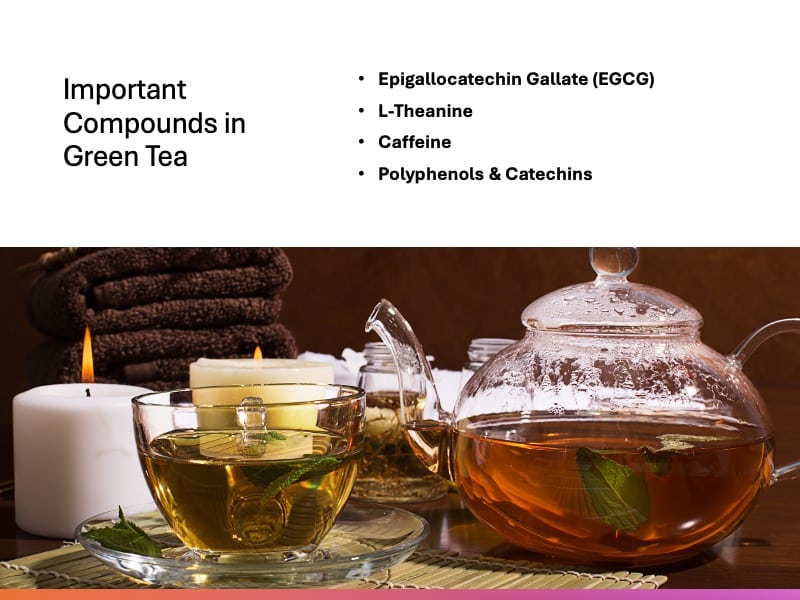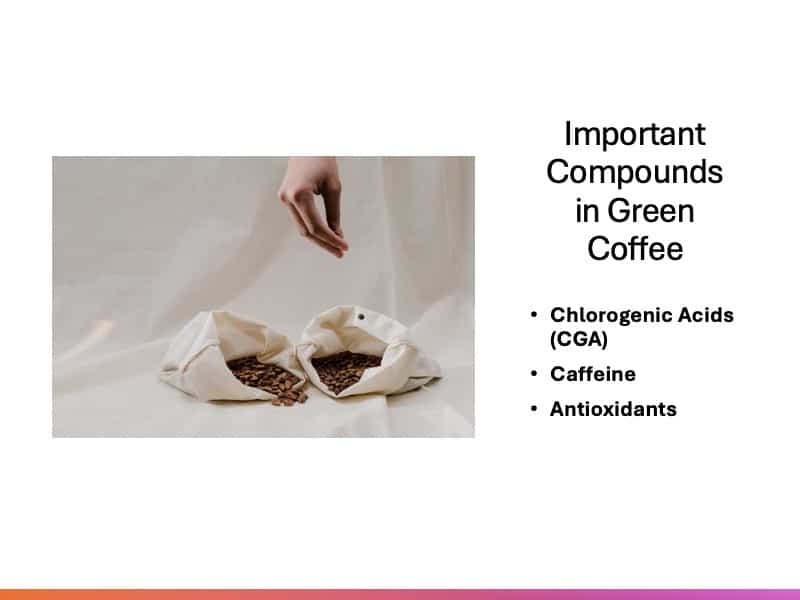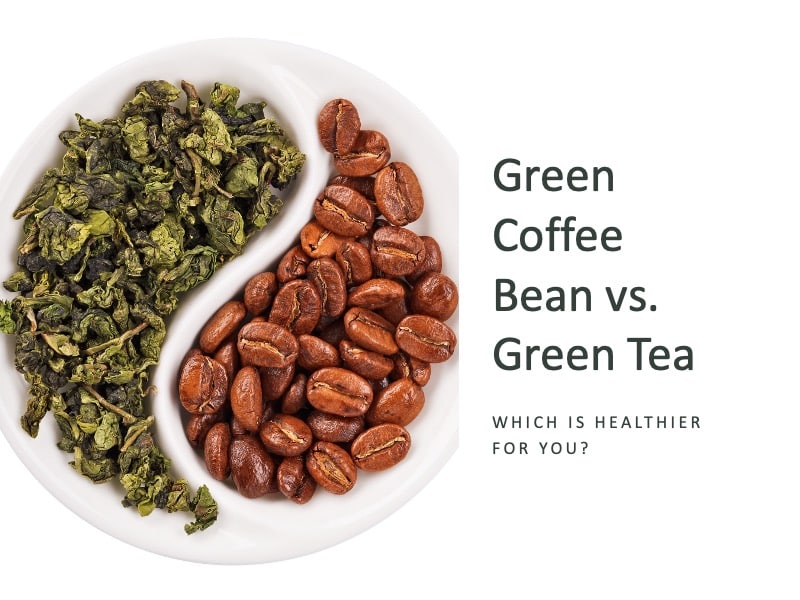Green Coffee Bean vs. Green Tea: Which is Healthier for You?
When comparing green tea vs. green coffee bean, both have gained attention for their role in weight loss, metabolism support, and cardiovascular health.
As a long-term green tea drinker, I’ve experienced firsthand the energy, metabolism, and overall wellness benefits that come from this antioxidant-rich beverage.
I’ve also used green coffee bean extract supplements in the past, particularly for their fat-burning and blood sugar-regulating properties.
Through my experience, I’ve found that supplements that combine both, like RSP AminoLean, offer an effective way to maximize their benefits.
Both green coffee bean and green tea contain unique bioactive compounds—catechins and L-theanine in green tea, chlorogenic acids in green coffee bean—that offer distinct advantages.
Understanding their strengths, risks, and the best ways to use them can help determine which one is better for your goals or whether using them together is the most effective approach.
In the end, choosing green coffee bean vs. green tea is a matter of personal preference, caffeine tolerance, and health priorities.
What is Green Tea?

Green tea is a lightly processed, antioxidant-rich beverage made from the Camellia sinensis plant, known for its catechins, L-theanine, and moderate caffeine content. It supports metabolism, brain function, heart health, and relaxation, making it a popular choice for both energy and overall wellness.
Green tea’s primary fat-burning component is epigallocatechin gallate (EGCG), a catechin with potent antioxidant and metabolism-boosting properties (Chow & Hakim, 2011).
EGCG works synergistically with caffeine to increase thermogenesis, fat oxidation, and energy expenditure, making it effective for weight loss (Dulloo et al., 2000).
Another unique compound in green tea is L-theanine, an amino acid that promotes relaxation while maintaining focus.
This helps counteract the jittery effects of caffeine, providing a smooth energy boost without the crash associated with coffee (Nobre et al., 2008).
Green tea also benefits cardiovascular health by improving lipid profiles and reducing inflammation. It has been shown to lower LDL cholesterol while raising HDL cholesterol, contributing to heart health (Steinmann et al., 2013).
Key Active Compounds in Green Tea:
- Epigallocatechin Gallate (EGCG): A powerful antioxidant that supports metabolism, fat oxidation, and heart health.
- L-Theanine: An amino acid that promotes relaxation and focus, counteracting caffeine’s stimulating effects.
- Caffeine: A natural stimulant that enhances mental alertness and energy levels.
- Polyphenols & Catechins: Bioactive compounds with anti-inflammatory, antimicrobial, and antioxidant properties.
Green tea is often consumed as a hot or iced beverage, but it is also available in powdered form (matcha), capsules, and extracts.
With its rich history and extensive health benefits, green tea is more than just a drink—it is a natural remedy for overall wellness and longevity.
What is Green Coffee?

Green coffee refers to unroasted coffee beans from the Coffea plant.
Unlike traditional coffee, which undergoes roasting to develop its dark color and rich aroma, green coffee beans retain their natural bioactive compounds, including high levels of chlorogenic acids (CGA)—a powerful antioxidant known for its potential health benefits.
Green coffee is often consumed in extract form as a dietary supplement rather than a brewed beverage because its flavor is much milder and more herbal than roasted coffee.
It contains caffeine, though generally less than traditional roasted coffee, providing a gentle energy boost.
Key Active Compounds in Green Coffee:
Green coffee beans are rich in chlorogenic acid (CGA), a polyphenol with antioxidant and metabolic-boosting properties. Unlike roasted coffee, which loses much of its CGA content during processing, green coffee retains these beneficial compounds.
Studies indicate that CGA helps with weight loss by reducing glucose absorption in the gut, slowing carbohydrate breakdown, and improving insulin sensitivity (Chen et al., 2020).
It also stimulates fat metabolism, potentially reducing body weight, BMI, and waist circumference (Gorji et al., 2019).
Green coffee bean extract has also been linked to cardiovascular benefits, including lowering total cholesterol, LDL cholesterol, and blood pressure (Pourmasoumi et al., 2021).
- Chlorogenic Acids (CGA): These polyphenols help regulate blood sugar, improve metabolism, and support fat loss by slowing carbohydrate absorption.
- Caffeine: A natural stimulant that enhances alertness, energy levels, and metabolism.
- Antioxidants: Help protect cells from oxidative stress, supporting heart health and reducing inflammation.
Health Benefits of Green Coffee:
- Supports weight loss by reducing glucose absorption and increasing fat metabolism.
- Regulates blood sugar levels and improves insulin sensitivity.
- Lowers blood pressure and supports heart health by improving lipid profiles.
- Provides mild energy boost without the jittery effects of highly caffeinated drinks.
Green coffee is commonly available in capsules, powdered supplements, and liquid extracts, making it easy to incorporate into a weight-loss or wellness routine.
Its popularity has grown due to its potential fat-burning and metabolic benefits, making it a sought-after alternative to traditional coffee for those looking to improve their health.
Green Tea vs Green Coffee Bean: Which is Better for You?
Both green tea and green coffee bean have gained popularity as natural health boosters, particularly for their potential in weight loss, metabolism support, and overall wellness.
While they share some similarities, their unique bioactive compounds—catechins and L-theanine in green tea, chlorogenic acids in green coffee bean—offer distinct benefits.
Choosing the better option depends on your health goals, caffeine tolerance, and personal preferences.
Green tea provides sustained energy, antioxidant protection, and cognitive benefits, making it ideal for long-term wellness and relaxation.
On the other hand, green coffee bean extract is a more potent fat-burning aid, particularly for blood sugar control and weight management.
Understanding their differences can help determine which one aligns best with your needs—or whether combining them might be the most effective approach.
Weight Loss Benefits: Which is More Effective?
Green coffee bean and green tea are two of the most effective natural fat burners—but which one reigns supreme? Let’s break it down.
Green Tea: Gradual and Sustainable Weight Loss
Many people turn to a cup of green tea or green tea extract for weight loss due to its ability to boost metabolism, enhance fat oxidation, and support long-term weight management.
Unlike extreme fat burners, green tea promotes a gradual and sustainable approach to shedding pounds, making it ideal for those looking for steady progress without harsh stimulants.
Its combination of catechins, L-theanine, and caffeine helps improve energy levels, fat metabolism, and exercise performance, all while keeping stress and cravings in check.
- Green tea enhances fat oxidation and energy expenditure during exercise (Venables et al., 2008).
- Drinking green tea before workouts can increase fat-burning efficiency (Murase et al., 2006).
- It regulates blood sugar and insulin levels, reducing fat storage (Liu et al., 2013)
Although green tea does not produce rapid weight loss, it supports long-term body composition improvements and metabolic health.
Green Coffee Bean: Rapid and Targeted Weight Loss
- Studies show significant reductions in BMI and body fat percentage with green coffee bean extract supplementation (Sudeep et al., 2021).
- CGA reduces carbohydrate absorption and improves insulin function, making it particularly useful for overweight individuals (Kanchanasurakit et al., 2023).
- Green coffee bean extract supplementation results in a greater reduction in body weight compared to control groups, especially in those with a starting BMI ≥ 25 kg/m² (Gorji et al., 2019).
While green coffee bean extract has shown more immediate weight loss effects, its long-term sustainability is less studied than green tea.
Winner
Winner for Weight Loss: Green coffee bean extract has a more pronounced effect on short-term fat loss, while green tea provides more gradual, long-term results with added health benefits.
Cardiovascular and Overall Health Benefits
Green Tea: Heart and Brain Health
- Lowers LDL cholesterol and improves HDL cholesterol (Kim et al., 2011).
- Reduces blood pressure and inflammation, which supports heart health (Steinmann et al., 2013).
- Enhances brain function and reduces stress, thanks to L-theanine and EGCG (Kimura et al., 2007).
- Strengthens immune function, reducing susceptibility to illness (Nakayama et al., 1993).
Green Coffee Bean: Blood Sugar & Lipid Control
- Lowers total cholesterol, triglycerides, and fasting glucose (Ding et al., 2020).
- May reduce systolic and diastolic blood pressure (Pourmasoumi et al., 2021).
- Enhances insulin sensitivity, reducing diabetes risk (Chen et al., 2020).
Winner
Winner for Overall Health: Green tea, due to its effects on heart health, cognitive function, and stress reduction, is the superior choice for long-term well-being.
Side Effects & Risks
Green Tea:
- Contains caffeine, which can cause jitters or insomnia if consumed in excess.
- Tannins in green tea may inhibit iron absorption, which can be problematic for those with anemia (Zijp et al., 2000).
- Green tea supplements with high doses of EGCG have been linked to liver toxicity in rare cases (Navarro et al., 2017).
Green Coffee Bean
- Higher caffeine content than green tea, potentially leading to jitters, anxiety, or heart palpitations.
- Some users report digestive discomfort and mild nausea.
- Chlorogenic acid (CGA) in high doses may cause liver issues (Asbaghi et al., 2021).
Winner
Winner for Safety: Green tea has fewer side effects than green coffee bean extract, especially when consumed as a beverage rather than a supplement.
Recommended Dosages & Best Practices
Green Tea
- 3–5 cups daily to maximize antioxidant and metabolic benefits (Abiri et al., 2023).
- For fat loss: If you primarily drink green tea for weight loss, I suggest you consume it 30–45 minutes before meals or exercise.
- Avoid drinking with meals to prevent iron absorption interference.
Green Coffee Bean Extract
- 400–500 mg per day of standardized extract (50% CGA) for optimal fat loss effects (Kanchanasurakit et al., 2023).
- For weight loss: Take before meals to reduce carbohydrate absorption.
- Avoid taking at night due to caffeine content.
How to Use Them Together
Combining green tea and green coffee bean extract can enhance fat loss, metabolism, and overall health benefits when used strategically throughout the day.
However, it’s important to time their intake correctly to maximize effectiveness and minimize potential side effects.
- Morning: Start your day with a cup of green tea on an empty stomach to gently wake up your metabolism and promote fat oxidation. Green tea’s L-theanine and caffeine combination provides a smooth energy boost without causing stomach discomfort.
- With Breakfast: Take green coffee bean extract (400–500 mg) with food rather than on an empty stomach. The high concentration of chlorogenic acids (CGA) can sometimes cause stomach irritation or digestive discomfortif taken alone. Consuming it with a meal helps prevent gastric issues while still supporting fat metabolism and blood sugar regulation.
- Pre-Workout: Drink another cup of green tea 30–45 minutes before exercise to enhance fat burning, endurance, and focus. The catechins and caffeine in green tea work together to optimize performance and energy levels.
- Afternoon: Have another cup of green tea in the early afternoon to sustain energy, support digestion, and provide additional antioxidant protection. This can also help reduce cravings and support metabolic health.
- Limit Caffeine Intake: Avoid consuming both supplements too late in the day to prevent sleep disturbances. Green tea is a better choice for later hours due to its lower caffeine content and calming L-theanine, while green coffee bean extract is best reserved for earlier in the day.
Using green tea and green coffee bean extract together can create a well-rounded approach to energy, fat loss, and overall well-being, but proper timing is essential for optimal results.
Final Verdict: Is Green Tea or Green Coffee Bean Better?
- For fat loss: Green coffee bean extract is more effective for rapid weight reduction.
- For overall health: Green tea offers broader benefits for heart, brain, and immune function.
- For best results: Combining green coffee bean extract and green tea provides a balanced approach to weight loss and well-being.
For those seeking a sustainable fat-burning strategy, drinking 3–5 cups of green tea daily while supplementing with 400–500 mg of green coffee bean extract may provide optimal results with minimal side effects.
Read Next: Coffee vs Green Tea
This website does not provide medical advice. This website site does contain affiliate links, and purchases may earn a commission.
Read my Medical Disclaimer, Review Disclaimer, and Publishing Policies for more details. Use of this site indicates acceptance of these terms.



